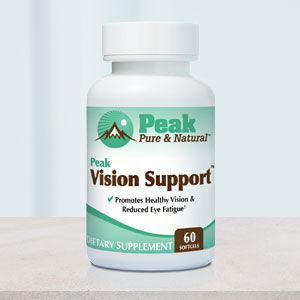Get Easy Health Digest™ in your inbox and don’t miss a thing when you subscribe today. Plus, get the free bonus report, Mother Nature’s Tips, Tricks and Remedies for Cholesterol, Blood Pressure & Blood Sugar as my way of saying welcome to the community!
What happens to your body and heart during sleep

When it comes to keeping your heart in great shape, many of us think about diet, exercise, and avoiding smoking. But there’s another crucial element to heart health: sleep.
In fact, sleep is now officially recognized by the American Heart Association (AHA) as part of the Essential 8 — a set of lifestyle measures proven to enhance cardiovascular health.
So how does sleep protect your heart? What happens to your body during sleep? And how can you make rest a priority in your daily life?
Sleep: A Cornerstone of the Essential 8
The AHA added sleep to its list of Essential 8 because research has confirmed that good-quality rest is critical to overall health, including the health of your heart. During sleep is when your body performs vital functions: repairing tissues, regulating hormones, and giving your heart and blood vessels a much-needed break. Without enough rest, these critical processes are interrupted, increasing your risk for high blood pressure, diabetes, and even heart attacks.
What Happens During Sleep
Sleep is more than just downtime for your body. When you sleep, especially during deeper stages, your heart rate and blood pressure drop, reducing the workload on your cardiovascular system. This nightly “reset” allows your heart to recover and prepare for the day ahead. Additionally, your body regulates essential hormones during sleep, such as:
- Stress hormones: Levels of cortisol, which can raise blood pressure, naturally decrease during sleep.
- Hunger hormones: Sleep balances ghrelin and leptin, the hormones that control hunger and fullness.
What Happens When You Don’t Get Enough Sleep
Skipping sleep, or even regularly getting less than seven hours a night, puts your heart at risk. Here’s how:
- Higher Blood Pressure: Without the nighttime drop in blood pressure that occurs during sleep, your heart and blood vessels remain under constant stress. Sleep apnea, specifically, can be the sole reason someone has hypertension. So if you snore and have high blood pressure, discuss sleep apnea screening with your physician.
- Increased Inflammation: Poor sleep is linked to higher levels of C-reactive protein, an inflammatory marker tied to heart disease.
- Elevated Stress Hormones: A lack of sleep can raise cortisol levels, contributing to higher heart rate, blood pressure, and blood sugar.
- Weight Gain: Sleep deprivation alters hunger-regulating hormones, making overeating more likely.
Over time, these factors can lead to conditions like hypertension, obesity, and diabetes — all of which strain your heart and increase your risk of heart disease and stroke.
How to Prioritize Sleep
The good news? Sleep is something you can control. Here are steps to help you get the quality rest your heart needs:
- Stick to a Sleep Schedule: Go to bed and wake up at the same time every day, even on weekends. A consistent schedule reinforces your body’s circadian rhythm, helping you fall asleep and wake up more easily.
- Create a Relaxing Bedtime Routine: Ease into sleep with calming activities like reading, meditating, or taking a warm bath. This signals your body that it’s time to wind down.
- Limit Stimulants: Avoid caffeine, nicotine, and heavy meals in the hours leading up to bedtime. These can disrupt your ability to fall or stay asleep.
- Turn Off Screens: Blue light from phones, tablets, and TVs can interfere with your body’s melatonin production, making it harder to fall asleep — power down at least an hour before bed.
If You’re Still Struggling
Poor and non-restorative sleep has wide-ranging health effects. This blog has focused on cardiometabolic health, but not getting enough nightly rest can contribute to cognitive decline and even cancer risk.
So if you’ve tried everything and are still struggling, talk to your doctor. For perimenopausal women, hormone replacement may be the answer. For others, sleep apnea evaluation may be appropriate.
In some circumstances, a formal referral to a Sleep Medicine specialist is required. The one thing NOT to do? Ignore your sleepless nights.
Editor’s note: There are perfectly safe and natural ways to decrease your risk of blood clots including the 25-cent vitamin, the nutrient that acts as a natural blood thinner and the powerful herb that helps clear plaque. To discover these and other secrets of long-lived hearts, click here for Hushed Up Natural Heart Cures and Common Misconceptions of Popular Heart Treatments!














